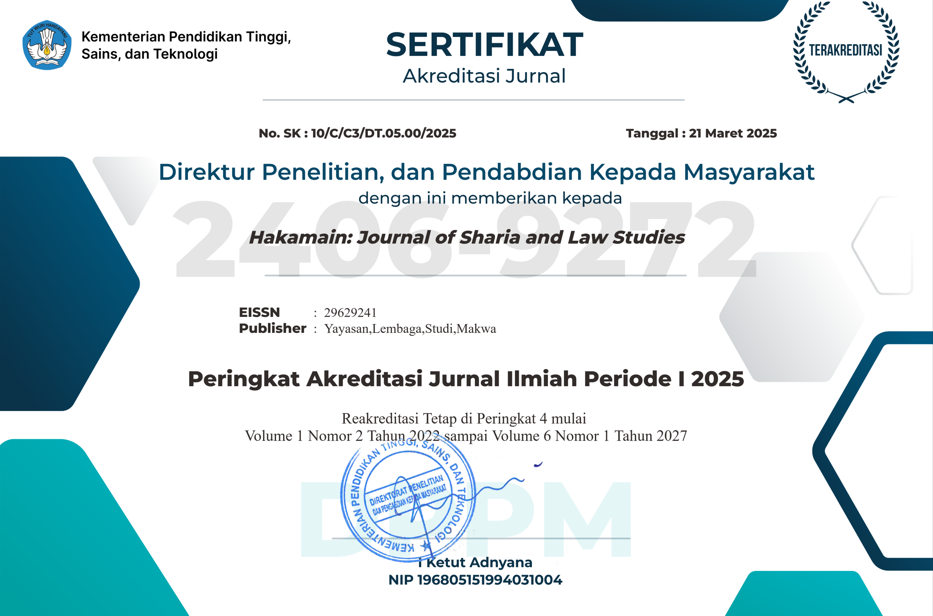Comparative Analysis of Islamic Family Law and Customary Law in the Settlement of Inheritance Disputes in Indonesia
DOI:
https://doi.org/10.57255/hakamain.v3i1.330Keywords:
Customary Law, Inheritance Disputes, Islamic Law, Legal ComparisonAbstract
The settlement of inheritance disputes in Indonesia is a complex issue involving various legal systems, including Islamic family law and customary law. This study aims to conduct a comparative analysis between these two legal systems in the context of inheritance dispute resolution. This research employs a qualitative approach with case study methods, examining court decisions, interviews with legal practitioners, and a review of relevant legal literature.The findings show that Islamic family law, based on Sharia principles, has a formal structure and stricter procedures in resolving inheritance disputes. On the other hand, customary law is more flexible, emphasizing deliberation and consensus, and adapting to local norms and cultural contexts. These differences often create tension and jurisdictional conflicts, especially in cases where the parties involved come from diverse cultural and religious backgrounds.The research also explores the challenges faced in the application of these legal systems, such as the lack of public awareness regarding their rights and institutional and bureaucratic obstacles. The findings are expected to provide deeper insights for legal practitioners, academics, and policymakers in strengthening a more just and inclusive inheritance dispute resolution system in Indonesia. By understanding the strengths and weaknesses of each system, it is hoped that solutions can be found that integrate positive elements from both legal systems to create a more effective and equitable mechanism for resolving inheritance disputes.
Downloads
Published
How to Cite
Issue
Section
Citation Check
License
Copyright (c) 2024 Utama Wardi, Yaswirman Yaswirman, Ismail Ismail, Gafnel Gafnel

This work is licensed under a Creative Commons Attribution-ShareAlike 4.0 International License.






